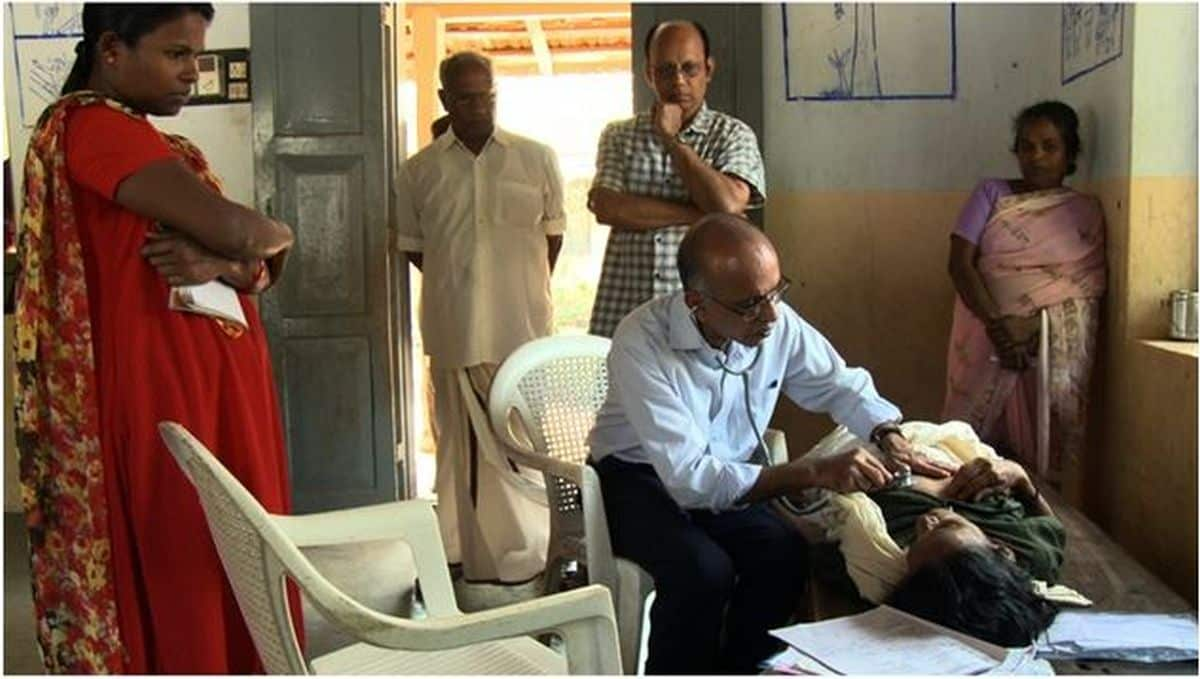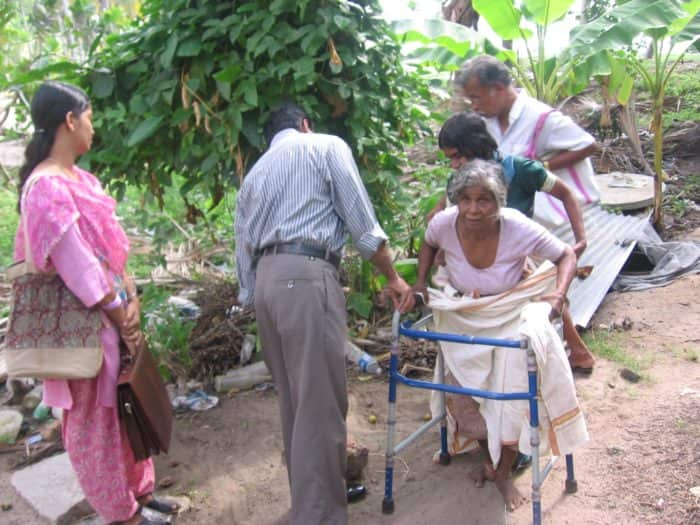Pain and palliative care is not an approach practiced widely in most of the developing world, including in India. But there is one man who has been passionately following one dream for more than two decades - to create a pain free India. Dr. M R Rajagopal is the lead character in a recently released feature-length Australian documentary.
Hippocratic - 18 experiments in gently shaking the world is an Australian documentary released in October 2017.
The 88-minute-long film directed by Mike Hill portrays the life and work of Dr M.R.Rajagopal, an anaesthetist by profession but better hailed as the "father of palliative care in India."
As Dr Rajagopal says, he is on a mission to "bring ethical practice to modern medicine through whole-person care."
The film travels through time and space revealing the journey Dr Rajagopal has embarked on to ensure pain relief and tranquility to terminally ill patients in one of the most populated countries in the world.
Situation abysmal in India
During his recent visit to Australia to attend the screenings of the documentary, Dr Rajagopal spoke to SBS Malayalam about his vision and mission.
He says that less than five per cent of the Indian population has access to pain management and palliative care even now and that the situation in the country is truly abysmal.
"Public awareness is very poor," he says. "Even among medical professionals in most parts of the country, awareness about palliative care is non-existent."
"The public is generally ignorant."
"If somebody is rolling in pain from cancer, the family does not even know that they need not suffer like that, but there is a low cost solution which can easily be accessible to most Indians."

He said that palliative care for a person could begin even before they are diagnosed with a disease and it could continue all through one's life.
Expats should initiate discussions in homeland
Explaining the lack of care facilities for the elderly in India, Dr Rajagopal stressed the need for creating awareness about palliative care facilities among overseas Indians, such as those in Australia, in order to ensure proper support for ageing parents living in their homeland.
"Very often old-age homes turn out to be prisons," says Dr Rajagopal.
He says, the care often extends to, "at the most bathing and feeding them, but not valuing them as human beings with feelings, nor helping them to live to their full potential."
"Very often old-age homes turn out to be prisons."
He said he would call upon the migrant Indians in Australia to collaborate with the facilities that provide palliative care in India, and to generate discussions on this issue.
"Unfortunately those who are suffering are too weak and unable to raise their voice and demand their rights, so we all have to raise that voice."
Cannabis and euthanasia - good to discuss in Australia, but cruel to think of in India
One of the major achievements of Dr Rajagopal was his successful struggle to amend the ruthless laws in India to ensure the availability of morphine to pain-stricken patients.
His efforts have resulted in the amendment of Narcotic Drugs and Psychotropic Substances (NDPS) Act of India in 2014, allowing millions to access pain relief.

"In a country like Australia which has ensured the availability of medicines like morphine for those who need it, it is rational to talk about cannabis availability. But in our country (India), it would be almost absurd."
However he believes that India has not matured enough to legalise medicinal cannabis - a bold step that Australia has realised recently.
Whereas opioid medicines like morphine help alleviate vast variety of pains, cannabis are effective in treating a tiny percentage of pain cases like neuropathic pain, he said.
"In a country like Australia which has ensured the availability of medicines like morphine for those who need it, it is rational to talk about cannabis availability. But in our country (India), it would be almost absurd."
He has shared similar views about legalising assisted dying for terminally ill patients, as passed by the lower house of the Victorian Parliament last week.
"It is very appropriate that Australia discusses the issue as it provides palliative care for the needy," he says.
But in India, he says, "it will be inhumane or almost obscene not to provide that basic pain relief, but, instead, to offer to kill them."
Listen to the full interview with Dr. M. R Rajagopal in English here:
Know more about the work of Dr. M.R.Rajagopal from this link.

